Have you noticed the recent fascination with ice baths? It’s surprised me. Ice baths have been around for decades in higher levels of sport as a recovery tool. And they’ve been researched for decades too.
But suddenly, I’m seeing ice baths in the media like they’re the newest advancement in human knowledge. And like every new fitness or wellness craze, there are dozens of claims about the benefits of this practice.
What benefits, exactly? And how much benefit can we get? Read on to find out. As usual, we’ll separate the science from the hype.
Claims around ice baths.
You can now buy relatively cheap, collapsible, portable ice baths to set up and use in the home. I’ve included some screenshots from an example social media advertisement throughout this article.

Faster recovery… increased performance… mood and energy boost. Vague claims like this are great because they are hard to prove wrong. Advertisers can almost say whatever they want.
Many of the ads are cheaply made, with a single still camera, and a fit looking person (usually a young woman in a bikini) setting up, then using, one of these ice baths.
As you can see, they make several claims about mood, mental health, exercise performance, and recovery. But they are vague, non-specific claims. As a rule, the more varied and numerous the claimed benefits, and the vaguer these statements are, the more we should be cautious!
What does the research say about ice baths?
As a rule, scientists are a careful lot. But marketing gurus are far less careful about their claims, so it would be surprising to see these claims completely supported. But we may find a few kernels of truth at the centre of these claims.
I’ll only be examining the claims made in the example shown here. This article isn’t comprehensive, and is not written to be. If you see some other claims being made you think I should address, let me know and we can update the article.
I’ll break the claims up into two broad categories – psychological, and physical. First, the psychological claims.

Some more vague claims. Don’t ice baths sound great? Everyone wants to improve their mental health, after all!
Can ice baths improve energy?
I’ve included this in the psychological claims, because when most people talk about energy, what they really mean is arousal. When scientists talk about energy, we are usually talking about the capacity to do work. If we want more energy to do more work, we eat.
On the other hand, arousal refers to how alert, and ready for action or active we feel. Can an ice bath improve this? Sure, immersing yourself in very cold water is quite the shock! Though a cold shower, your favourite song, or a coffee can also increase arousal. And all these things can be done with much less time and expense than an ice bath. But do what works for you – in Australian rugby league in the 80s, one team used to slap each other as part of the warm-up.
Can ice baths improve mood?
There is some evidence for improved mood following cold-water immersion (or CWI. In the research this may include any very cold body of water). But I wasn’t super impressed by what I read.
For a start, these articles were often in low quality journals. And while I could find some narrative reviews, I couldn’t find a meta-analysis, which is the first thing I look for when assessing a claim. These give us an idea of what the whole body of research says, rather than one or two cherry-picked articles. If I can’t find one, it’s not a great sign.
I found plenty of single studies showing improvements in mood. One showed a benefit following 20 minutes of ocean immersion, another showed improved mood for 3 hours, and reduced cortisol , after cold-water immersion.
But I don’t find them super convincing. Many didn’t have a comparison group, or even a control group. Sample sizes were small, and there was no long-term follow up. They were only examining short-term changes.
Mood is a transient thing, so ignoring longer timeframes is ok. But do you know what else can improve mood? Anything. Go for a walk. Have a coffee. Play with your dog. Read a book. Water your lawn. Watch your favourite show. If you do something you enjoy, your mood will improve.
If that thing is an ice bath, great. But none of these studies compared cold-water immersion to anything else. If they had a control group, all that shows is it was better than doing nothing at all. But so is everything else you can think of.
Can ice baths improve mental health?
I’ve been generous so far. Ice baths are as good as anything else for the benefits discussed so far. So do them or not, it’s up to you.
But I couldn’t find any evidence to support the idea the ice baths improve mental health. If you know of anything, please let me know! Some suggest there could be a benefit because of the mood changes identified above. But I don’t find that convincing. After all, people suffering depression can have good moods. Extrapolating from that is like saying climate change isn’t real because it’s cold outside. I’m not convinced. And before you decide to chime in about climate change, read this.
What about the physical benefits of ice baths?
The claims here centre around improved exercise performance, less pain after exercise, and quicker recovery. And the key benefit of cold-water immersion, according to the proponents, is to reduce inflammation.
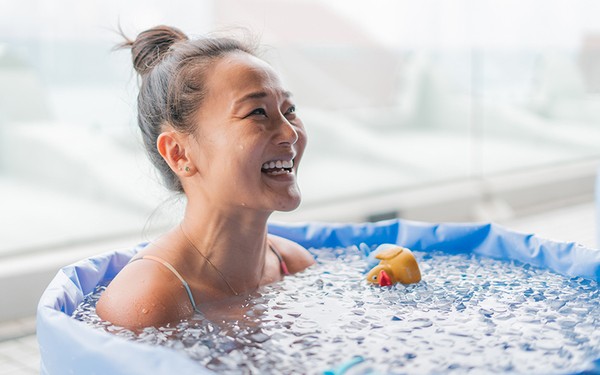
I’ll give the marketing people this… they make ice baths look fun. But they’re really not!
Why do we want to stop inflammation?
Everyone freaks out about inflammation these days. And to be fair, ice baths have been part of professional sport for decades, to varying extents. So, there is a long history of research assessing the benefits of these ice baths. If we can reduce this inflammation, and recover faster, we can train better.
But inflammation is part of our response to exercise. And while chronic, low-grade inflammation is associated with disease risk, and is seen in soft tissue injury, inflammation is also a normal response to exercise. Without a certain amount of inflammation, we won’t adapt to exercise, and improve. This same exercise can also reduce chronic inflammation.
Exercise is both a cause of, and a treatment for, inflammation. As usual, the concept is far more complex than people make it think, and lots of people have misconceptions about this.
Can ice baths help our training?
If we reduce inflammation after exercise, we risk getting less benefit from our workouts! A 2023 meta-analysis showed that cold-water immersion following resistance training could reduce the muscle growth we get from the training. Tell that to the next gym bro who tells you how great his ice baths are!
This supports a similar analysis in 2021 which also found a reduction in strength following cold water immersion, though endurance exercise did not suffer in the same way.
As mentioned earlier, it’s not as easy as “inflammation is bad, and we need to reduce it as much as possible”. Our physiology is rarely that simple.
Can ice baths reduce soreness?
Other research has found cold water immersion to be slightly better than doing nothing when it comes to reducing muscle soreness after a workout. But this is very different to what the advertisements claim. Recover 3 times faster?!! Nonsense.
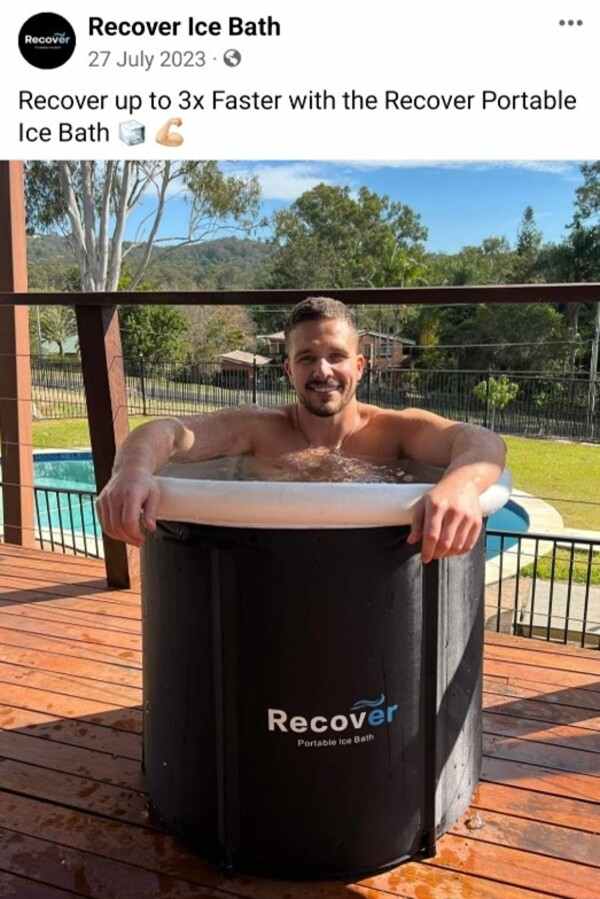
In fact, while lots of people find muscle soreness after exercise (called DOMS, or Delayed Onset Muscle Soreness) uncomfortable, it doesn’t impact your performance. Once you’ve warmed up well DOMS is significantly less.
DOMS is also a poor indicator of muscle damage. Many exercisers and trainers rely on it to identify if they are recovered from a workout or not, but they probably shouldn’t.
Time is still the best recovery tool we have. Eat well and sleep well in that time, and vary your modes and intensity of exercise, and DOMS will probably be less of an issue. Build up gradually and give your soft tissues time to adapt to exercise, rather than take an all or nothing approach to your training.
A good fitness professional will be able to guide you through this process. Though beware, there are plenty of bad ones around.
What can we conclude?
Let’s examine again the claims from the advertising above:
- Do ice baths improve mental health? This is unsupported by the research, so no.
- Do they reduce inflammation? Yes, but you may not want it to!
- Do they relieve muscle pain? Yes, a little.
- Can you recover faster? If soreness counts as recovery, sure, a bit. But we also want to improve from our training, not just recover. It doesn’t help with that.
- Do they increase performance? No. In fact, the opposite is true when looking at strength.
- Can they improve mood and energy? Sure, if you think an ice bath will help, then it will.

Placebos: taking money from the uninformed since 1799.
Am I just an ice bath hater?
Not at all. In fact, in my time working in sport we used them all the time. At that point, the research was leaning towards them having some benefit, though it was far from settled. But the end of my time in sport, their use was being questioned more. I moved away from insisting that players did them, to letting the players choose. It wasn’t something to invest my limited time and energy into when the probable benefit was marginal.
If you want to do an ice bath, great, enjoy. You aren’t hurting anyone. It might even do you some good (though it probably won’t). But go easy on the miraculous claims.
Note: all images are used under fair dealing provisions in Australia, for the purposes of criticism or review. If you think your image has been used unfairly, please don’t hesitate to get in touch.
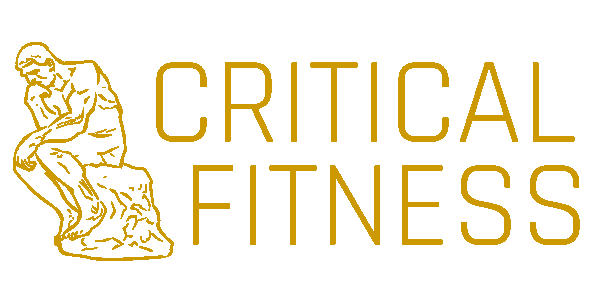
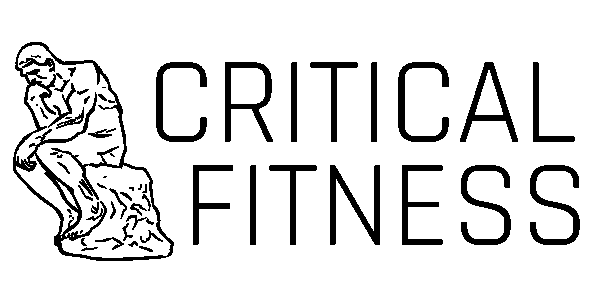
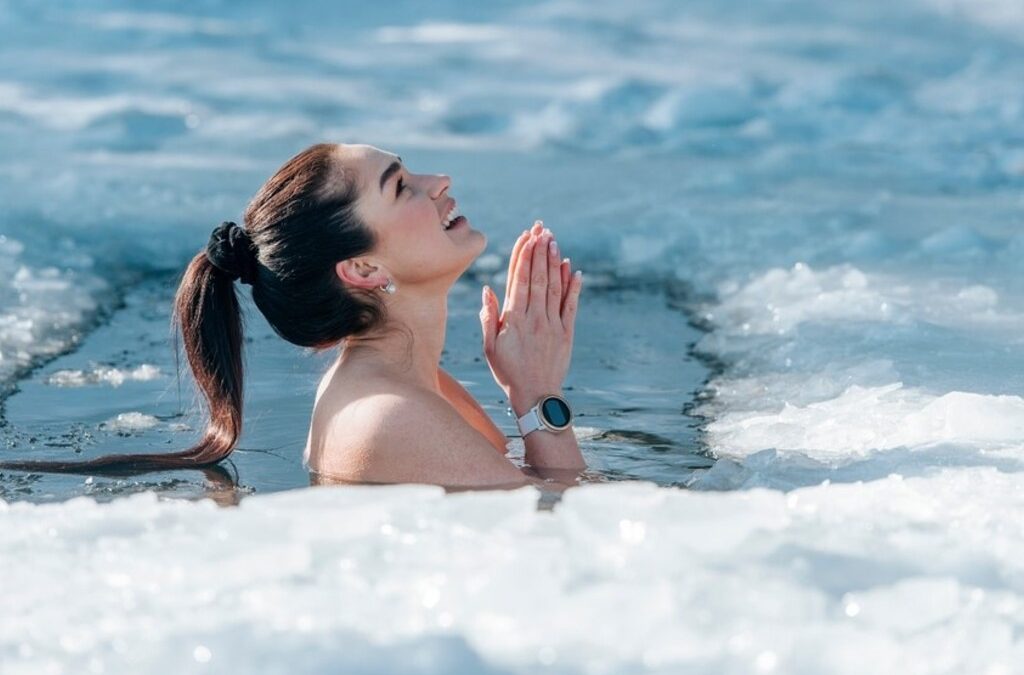
Recent Comments